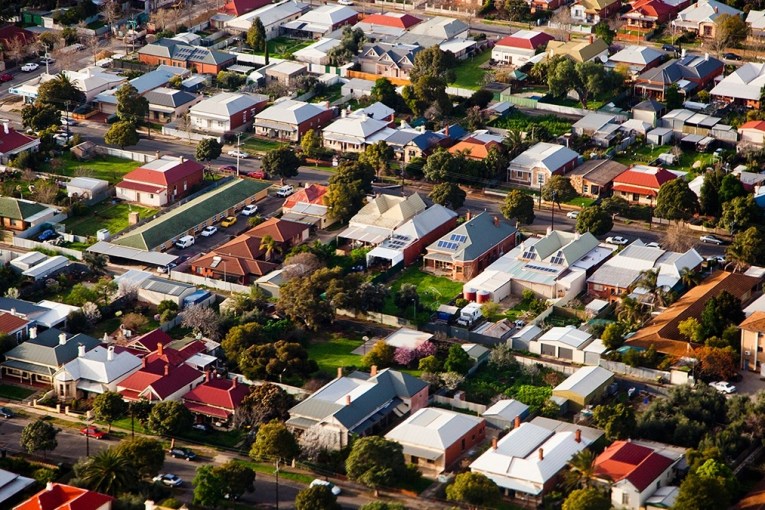How the security on your investment property loan affects your pension


The type of security used against your investment property affects your pension entitlements. Photo: Getty
Question 1: I have an investment property worth $340,000 with a loan of $340,000. The property is secured by the investment property plus our home. Do they cancel out each other, or is a reduced amount taken in regard to apply for a part pension?
It’s not uncommon these days to see individuals reach age pension age and have an investment property, and your question comes up a lot.
Generally, for social security purposes, the value of an asset can be reduced by any outstanding loan (or charge or encumbrance) over that asset. But there are some exceptions.
Relevant to your situation, a loan cannot be deducted from the value of an asset if the asset it is secured against is exempt from the assets test (i.e. your principal home).
Therefore, the amount that is reported to Centrelink for your investment property is dependent on what is used as security on the loan:
- If the investment property is used as security on the loan, then the net value is reported to Centrelink, i.e. the value of the investment property minus the loan on the property
- If the principal home is used as security on the loan, then the gross value is reported to Centrelink, i.e. the full value of the investment property (with no deductions).
Now, your situation is slightly more complicated, as you have used both your investment property and your principal place of residence as security. In these instances, Centrelink have a formula they use:
- (Value of loan x value of assessable asset) / Value of the secured assets
Example:
Barry has an outstanding loan of $300,000 secured against his principal home (worth $500,000) and his investment property (worth $400,000). As his principal home is an exempt asset, only part of the loan will reduce Barry’s assessable assets.
The assessable value of Barry’s investment property will be reduced as follows:
($300,000 x $400,000)/$900,000 = $133,333
Accordingly, the assessable value for age pension purposes of the investment property is $266,667 (i.e. $400,000 less $133,333).
This is not commonly understood and needs to be considered for those looking to buy an investment property and expecting to be in receipt of a full or part age pension in future.
Question 2: How is rental income from an investment property assessed by Centrelink for the purposes of the income test?
Net income received from an investment property is assessed by Centrelink under the income test.
Generally, the rules for assessing income from an investment property are the same as the income tax rules and Centrelink can use your most recent tax return.
However, there are some items which are deductible for tax purposes that are not deductible for social security purposes. These include:
- Capital depreciation and development costs
- Borrowing costs (e.g. bank fees and charges)
- Offsetting of losses between rental properties.
Where a tax return is unavailable (for example, in the first year of leasing a property), Centrelink will allow the rental income to be reduced by a minimum of one-third to cover expenses, plus a deduction is allowed for interest costs.
If the net income from property is negative, the income for social security purposes is nil (it cannot go negative and offset against other income).
Note the next two investment property questions have been answered together.
Question 3: I have an investment property. When it is sold it will be subject to CGT. I understand that. But if I die and leave it to my son, I understand he will not have to pay CGT unless he then sells it. Is that the case? And is there a time limit, or will that property always be subject to CGT eventually?
Question 4: Hi Craig, Your articles are fantastic.
Thanks to you some friends were convinced to look at obtaining a part age pension. And they were successful.
I have a question regarding CGT. If I sell my investment property then I know that CGT is payable. If I transfer my investment property to my daughter I assume that will also trigger a CGT event. If my daughter inherits the property, is CGT payable on transfer? Or only payable if she sells the property at a later stage? Cheers Coxy
Hi Coxy,
Thanks for your feedback and glad to hear your friends were successful in obtaining the age pension. Many people don’t realise they can obtain a benefit so it’s always worth investigating.
In relation to capital gains tax (CGT), you are correct in saying if you sell or transfer your property, this triggers a CGT event and tax will be payable.
If you pass away and leave your child an investment property, they not only inherit the property but the ‘cost base’ for capital gains tax (CGT) purposes as well.
The cost base of a CGT asset is generally what it cost you to buy it, plus other costs you incur to hold and dispose of it.
If you bought the property before the introduction of CGT in Australia (20 September 1985) then the cost base will be the value of the property at your date of death.
So, initially there is no CGT immediately payable, but your daughter (or whomever inherits the property) will be liable for CGT when she sells it, on the sale price less the cost base and any other discounts.
There is no time limit – it will eventually be liable for CGT.
Craig Sankey is a licensed financial adviser and head of Technical Services & Advice Enablement at Industry Fund Services
Disclaimer: The responses provided are general in nature, and while they are prompted by the questions asked, they have been prepared without taking into consideration all your objectives, financial situation or needs.
Before relying on any of the information, please ensure that you consider the appropriateness of the information for your objectives, financial situation or needs. To the extent that it is permitted by law, no responsibility for errors or omissions is accepted by IFS and its representatives.
The New Daily is owned by Industry Super Holdings








